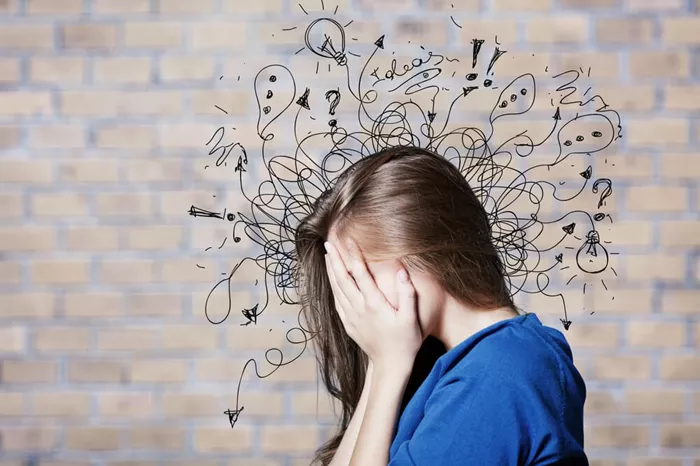Teenage anxiety is becoming more common, and it can affect mental health, daily functioning, and relationships. With the pressures of school, social life, and personal development, many teenagers struggle to cope. However, effective therapies can provide relief. In this article, we’ll explore six of the best therapy options to help teenagers manage and reduce anxiety.
The 6 Best Therapy For Teenage Anxiety
1. Cognitive Behavioral Therapy (CBT)
Cognitive Behavioral Therapy (CBT) is one of the most widely recommended therapies for anxiety in teens. It helps them recognize and change negative thinking patterns. CBT teaches coping strategies and problem-solving techniques to manage stress and anxiety. The goal is to change how teens think about their worries and replace irrational thoughts with more positive, realistic ones.
How It Works:
Thought Identification: Teens learn to identify negative or anxious thoughts.
Cognitive Restructuring: The therapist helps the teen change those thoughts to be more balanced.
Behavioral Techniques: Teens practice ways to face feared situations gradually.
CBT is often recommended because it helps teens develop lifelong skills to cope with anxiety.
2. Mindfulness and Meditation
Mindfulness is about being present in the moment, without judgment. Practicing mindfulness through meditation, breathing exercises, or mindful activities helps teens manage anxiety by focusing on their thoughts and emotions without letting them spiral. It can also reduce physical symptoms of anxiety, such as a racing heart or shortness of breath.
How It Works:
Breathing Exercises: Slow, deep breathing helps calm the nervous system.
Body Scan: Teens focus on each part of their body to release tension.
Mindful Walking: Paying attention to the surroundings while walking can help them stay grounded.
Mindfulness therapy can improve emotional regulation and help teens stay calm during stressful situations.
3. Exposure Therapy
Exposure therapy is often used to treat phobias and generalized anxiety. In this therapy, teens are gradually exposed to the situations or objects they fear in a controlled way. Over time, this process helps reduce anxiety by showing that the feared situation is not as dangerous as they think.
How It Works:
Gradual Exposure: Teens start by imagining the feared situation and slowly work up to confronting it.
Real-Life Situations: In some cases, they may face real-life situations while being coached by a therapist.
Repetition: Repeated exposure helps decrease fear.
Exposure therapy can help teens build resilience against anxiety-triggering situations.
4. Family Therapy
Family therapy involves the teen, their parents, and a therapist. This type of therapy helps families communicate better, understand anxiety, and work together to create a supportive environment. Parents can play a crucial role in their teen’s recovery by learning ways to help manage anxiety.
How It Works:
Parent Training: Parents learn effective ways to respond to their teen’s anxiety.
Family Dynamics: The therapist helps improve communication and resolve conflicts within the family.
Support System: Teens and parents work together to strengthen emotional bonds.
Family therapy can be particularly helpful when anxiety is related to family stress or relationship issues.
5. Medication Therapy
While therapy can be extremely beneficial, sometimes medication is also needed. Antidepressants like selective serotonin reuptake inhibitors (SSRIs) are commonly prescribed for teenagers with anxiety disorders. These medications can help regulate mood and reduce feelings of anxiety. However, medication should always be paired with therapy for the best results.
How It Works:
Antidepressants: These medications can adjust the levels of serotonin in the brain.
Consultation with a Doctor: Doctors monitor the teen’s progress and adjust dosages if needed.
Long-Term Care: Medication is often used short-term or as a supplement to therapy.
Medication therapy can provide immediate relief, allowing teens to engage better in other therapeutic methods.
6. Art and Music Therapy
Art and music therapy allow teens to express their feelings in a creative way. Whether it’s through drawing, painting, or playing an instrument, these therapies can be incredibly effective for anxious teens who find it difficult to articulate their feelings. The therapeutic process helps release pent-up emotions and provides an outlet for anxiety.
How It Works:
Creative Expression: Teens use art or music as a way to express their emotions.
Therapist Guidance: The therapist helps guide the teen to reflect on their creative process and explore emotions.
Relaxation: Engaging in creative activities can also help calm the nervous system.
Art and music therapy can be especially helpful for teens who struggle to communicate verbally.
Conclusion
Teenage anxiety is manageable with the right therapy. Whether through Cognitive Behavioral Therapy, mindfulness practices, or family support, many options are available. Teens should find the therapy that best suits their needs and work closely with professionals to navigate their journey toward better mental health.
5 FAQs About Teenage Anxiety:
What are the signs that a teenager is struggling with anxiety?
Teenagers with anxiety may show signs like constant worrying, avoidance of social situations, physical symptoms (headaches, stomachaches), and irritability.
How does anxiety affect a teenager’s social life?
Anxiety can lead to withdrawal from friends, avoidance of social events, and difficulty forming connections, which can affect a teen’s overall well-being.
When should a teen see a therapist for anxiety?
If anxiety is interfering with school, social life, or overall happiness, it’s a good idea to seek professional help.
Can anxiety in teens go away on its own?
While some teens may outgrow anxiety, it is important to address it early to prevent it from worsening or developing into a chronic problem.
What role can parents play in helping teens with anxiety?
Parents can support their teens by providing a calm, understanding environment, encouraging healthy coping strategies, and helping them access the right therapy.
Related topics:
- How To Treat Teenage Depression At Home?
- Tired Of Stomach Pain From Anxiety? Try These Effective Solutions
- How To Know If My Teenager Is Depressed?


